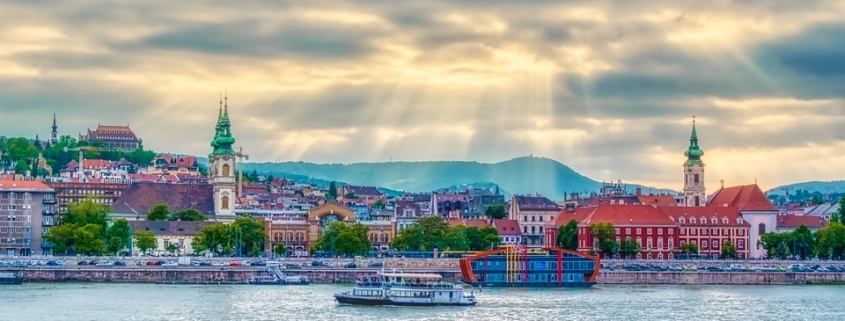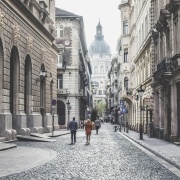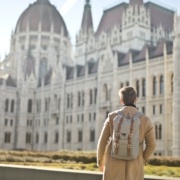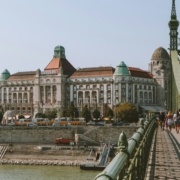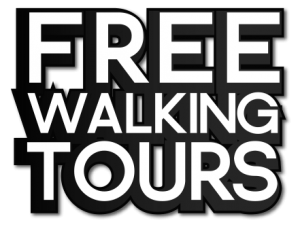11 Practical Tips for Traveling to Budapest: Dos and Don’ts
If you have visited our favorite town, you already know what to expect. You have to prepare for your stay here as if you would discover any other European cities, but if it is your first time in this city or maybe it is your first time in Europe, we share with you a couple of practical tips for traveling to Budapest. Budapest offers a rich cultural experience, stunning architecture, and picturesque landscapes. To make the most of your trip, it’s essential to know some practical tips. This blog provides dos and don’ts for Budapest, including transportation options, local customs and currency information, and safety recommendations.
Tip 1 – Research and Plan Ahead:
Before your visit to Budapest, conduct thorough research about the country’s history, landmarks, and local customs. Plan your itinerary accordingly to make the most of your visit. If you need specific recommendations, feel free to contact us at info@triptobudapest.hu or explore Budapest before you arrive on our Facebook page.
Tip 2 – Don’t Forget Valid Identification:
Always carry valid identification with you, such as your passport or a copy of it. It may be required when checking into accommodations or dealing with authorities. You also need to show your ID if you wish to purchase alcohol in a shop and appear younger than 18 years old.
Tip 3 – Using Public Transportation:
Public transportation, including trams, buses, and the metro, is an efficient and affordable way to explore Budapest. If you plan to use public transport frequently, consider a 24-hour Budapest travel card. You can find more information here.
Inspectors often check for validated tickets.
Use Public Transport Apps: Download public transportation apps with English language options for route planning and ticket purchases. https://bkk.hu/en/tickets-and-passes/budapestgo/
Tip 4 – Currency Info:
The official currency of Hungary is the Hungarian Forint (HUF). Familiarize yourself with the currency denominations and their approximate values. Be careful about banknotes 2,000 HUF and 20,000 HUF as these look very similar.
While some larger establishments and supermarkets may accept euros, it’s advisable to have local currency for smaller transactions.
Tip 5 – Money Exchange:
Avoid exchanging money at the airport or with individuals on the street, as they might offer unfavorable rates. Old Hungarian banknotes may still be exchanged free of charge at MNB (Hungarian National Bank). Address:1122 Budapest,Krisztina krt. 6.
Tip 6 – Credit Cards and ATMs:
Credit cards are widely accepted in larger establishments, hotels, and restaurants. However, it’s advisable to carry some cash for smaller vendors or places that only accept cash.
Tip 7 – Learn Basic Hungarian:
While many young Hungarians speak English, learning a few basic Hungarian phrases can go a long way in establishing rapport with locals. Simple greetings, “thank you” (köszönöm), and “excuse me” (elnézést) will be greatly appreciated. Take our daily FREE BUDAPEST TOURS starting at 10.30 am and 4.30 pm to learn about the Hungarian language and the basic Hungarian phrases and words.
Tip 8 – Tap Water:
Tap water is safe to drink in Budapest and meets high-quality standards. Familiarize yourself with the color code for bottled water to choose your preference. Water with a BLUE CAP is usually fizzy with bubbles. Water with a PINK CAP is still. Water with a GREEN CAP is lightly carbonated.
Tip 9 – Tipping Culture:
Tipping in Budapest is appreciated but not mandatory. Many restaurants and cafes include a service charge in the bill. When this fee is included, additional tipping is not obligatory, but it’s still appreciated for exceptional service.
Tip 10 – Pickpockets:
Hungary is generally a safe country to visit. However, as with any travel destination, it’s essential to stay aware of your surroundings, especially in crowded areas, and keep an eye on your belongings to prevent theft. Be wary of anyone trying to distract you, as this can be a common tactic used by pickpockets. Popular tourist attractions like Fisherman’s Bastion, and Great Market Hall can be attractive to pickpockets due to the large crowds. Be cautious on trams, buses, and the metro, especially during rush hours when it’s crowded. Pay extra attention when getting on and off vehicles.
Tip 11 – Mobile Phones in Budapest:
Budapest has several mobile network operators, including Magyar Telekom, Vodafone Hungary, and Telenor Hungary. These providers offer extensive coverage in the city and surrounding areas. Good signal quality is generally expected.
We hope our practical tips for traveling to Budapest will help you have a more enjoyable and smooth experience while you stay here. Have a wonderful time in Budapest!

